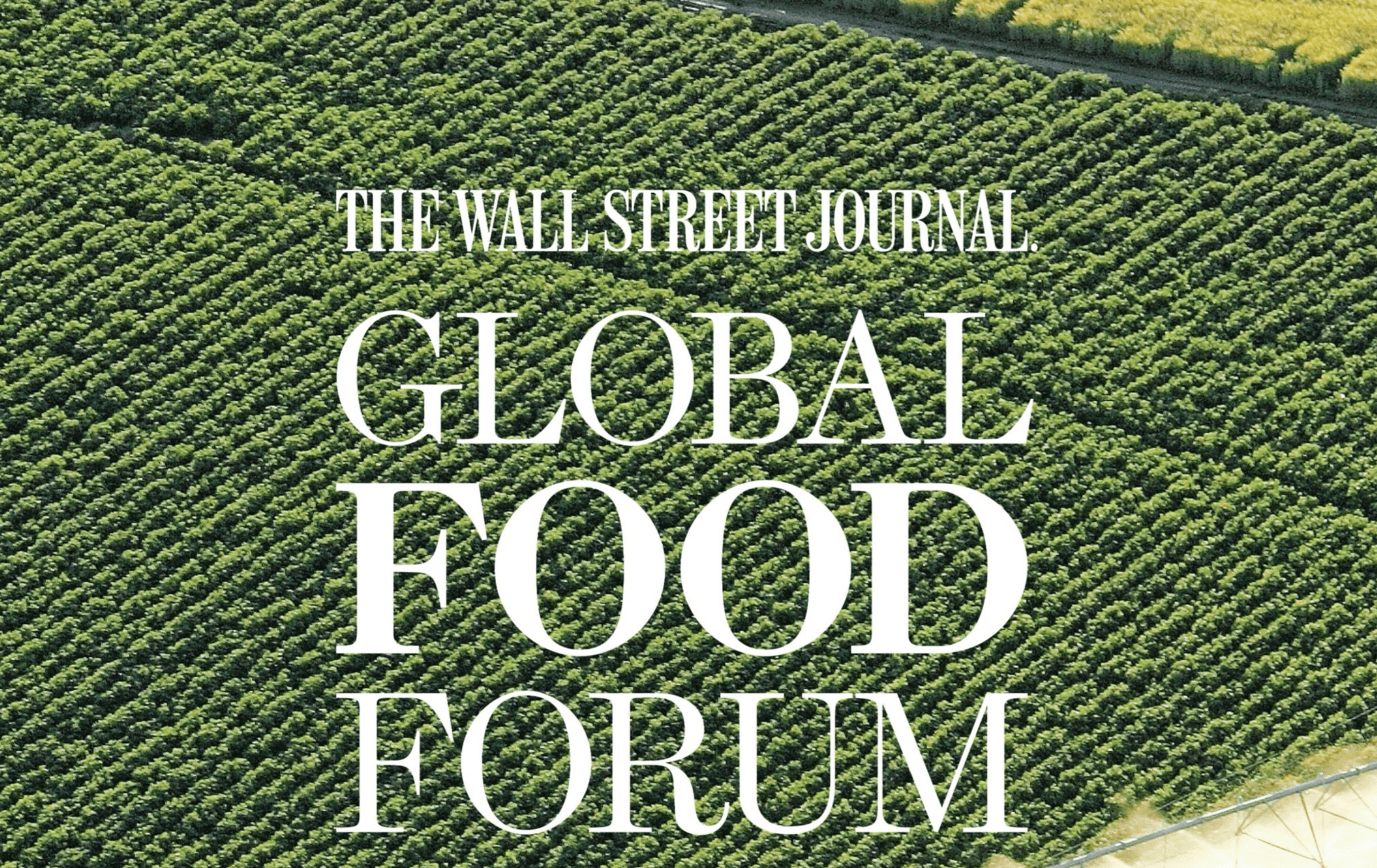For nearly a decade the food industry has been reeling from the tsunami of change that washed over the sector. Caught off guard, titans of established multi-national businesses found themselves at a loss for ways to dig out and survive. I attended the Wall Street Journal Food Forum last week, and can tell you the industry has definitely turned the corner. It is well on the way to recovery; re-energized and reimagined. Here’s why…

Going for Growth:
Organizers launched the event with some impressive data heralding the enormous upside and optimism for growth. Gerald Baker, editor at large, kicked off the Forum with growth projections that invigorated the room.
- The food industry (end to end) is expected to double to $1.7 trillion in 2 years
- Domestically, food is expected to hit 2.8 billion in 2 years
Strengthening Our Roots:
There was unprecedented acknowledgement of the interdependencies within the supply and value chain by both WSJ editors and those in attendance. The importance of protecting and promoting the value of American agricultural businesses and partners was echoed throughout the conference. Policies and protectionism continue to threaten the strength of the supply chain, and American food companies are doubling down to ensure that does not weaken their ability to grow and evolve. Many are working directly with farm and agricultural organizations, in partnership with NGOs and stakeholders, to revive and protect our resources and ensure a safe and robust food supply for the world.
Leading Through Change with a Fresh View:
Leaders of the world’s top food brands conveyed incredible insights and a fresh strategic focus as established brands evolve and build new loyalties. What is clear, is that these leaders have adopted a new view that there is no longer one mass audience. They are reshaping their portfolios to appeal to a spectrum of consumer expectations and demands. They’ve embraced building their business on 1:1 market segmentation and have found dynamic ways to deliver at scale. And, btw, these leaders are all women; something you simply would not have seen 10 years ago.
Paving the Information Highway:
The blockchain train is gathering steam. I heard many stories of partnerships and focused initiatives working to transform how the industry collects, uses and shares data both to protect the company and to rebuild consumer trust. The superhighway of information is under construction. Brands in attendance cited several success stories that have emerged and claim we will see more ‘easy on-ramps’ built for consumer access and exploration. As our own Food 2020 proprietary research study has shown, and was further corroborated in our recent Talk Food Tech to Me transparency study, consumers are not asking for more information. They are asking for better access to the information they want when and where they want it. We are close. We are very close.
Turning the Corner on Tech:
The notion of technology and food has long been a turn-off to consumers. But, the desire for innovation and improvement in food production and products is clearly superseding many concerns. A new crop of consumers are “all-in” when it comes to food technologies, and this conference clearly signaled we are just beginning to see the first wave of reno-tech and engineered foods. Companies leaning into gene edited seeds and foods emphasize that they need to work with brands “to build clear stories that identify the origins of all ingredients” and establish “a clear chain of custody” for the technology and the responsibilities that go with it. Speakers claim that in less than 20 years the majority of seeds used to grow goods will be edited. However, we are not out of the woods yet. Creating knowledge, understanding, transparency, and trust in the food supply is job number one for the foreseeable future.
Abundance Generates Abundant Challenges:
Bayer Crop Sciences CEO, Liam Condon, warned that, “Focusing on productivity is not enough to ensure a growing food supply and value chain.” He emphasized a renewed focus on “data and analytics that will energize greater interest and investments in sustainability.” Sustainability priorities will require this industry to take a hard look at the “after effects” of what it produces and sells. While Syngenta CEO, Erik Fyrwald, reminded us that, “Farmers in the USA are greenhouse gas negative unlike other countries, and food and packaging waste will be the number one challenge to be addressed in this century. As the world population grows and we grow the food sector, we will be challenged to manage what we sow.” Chris Cochran, executive director of ReFed, a nonprofit network of business, foundation and government leaders committed to reducing U.S. food waste, believes there is a way to look at this problem as a growth opportunity. He says food companies lose twice what they realize in profits in food waste dollars and cited that recent investments in food waste reduction nearing $18bn will generate over $100bn in growth in less than two years. He also noted that over half of the waste reduction innovators were founded in the last five years generating $185 million in waste reduction in the past 18 months.
American Trade Independence Reimagined:
Perhaps one of the most provocative presentations at the Forum was that of Sara Menker, CEO of Gro Intelligence, a data and analytics firm dedicated to the food and agriculture sector. Sara, like nearly 100% of the food industry, has been watching the dollars and data relative to NAFTA and trade/tariff challenges with great interest. With so much of the U.S. food industry’s economic value attached to foreign trading, investments, along with economic uncertainty and a polarized political discourse here at home, current events have sent the industry into a “manage through this period” frenzy. However, Menker’s firm tossed the numbers into a batch of new data points that no one had been looking at. To her surprise, and the surprise of a stunned audience of CEOs, she declared, “This is not a temporary situation.” Menker revealed data that showed China has been slowly and quietly buying up over 17 million acres of sub-Saharan Africa, Latin America and Europe. While it is a way off from utilizing the land on its own, it is buying up corporations and vertical production systems that can—and will soon be the gateway developers of food within many countries.
Concluding the day’s events, U.S. Secretary of Agriculture, Sonny Perdue, echoed the watch out to all players in the food industry, “Is China really dependent upon us or are we dependent upon China? Growth is clearly within reach, but America can no longer rely on old, established assumptions to strategically lead this sector through what appears to be continuous cycles of change ahead.”
My take? We are going forward with a plan—with eyes wide open—and will grow bigger and better than we have ever been.
Have any questions? Connect with me!



